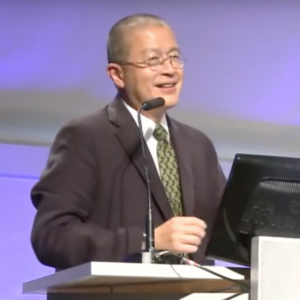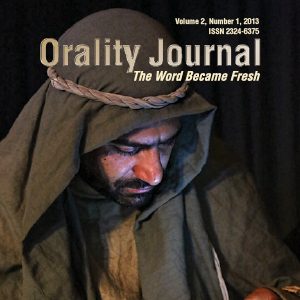 Started by a Japanese woman, a recent viral movement is spreading rapidly. All over the world, people are growing more and more enthusiastic—to declutter.
Started by a Japanese woman, a recent viral movement is spreading rapidly. All over the world, people are growing more and more enthusiastic—to declutter.
The person behind this movement is Marie Kondo, otherwise known as Japan’s declutter queen. Ms. Kondo, founder of KonMari, propagates a method of organizing and decluttering our lives and homes that is catching on. It even has a spiritual component. Her basic premise is that “anything that doesn’t make you happy or isn’t absolutely necessary should be touched, thanked, and sent on its way.”1
More and more, I’m thinking the global mission community should take Kondo’s advice about decluttering—both in a physical and a spiritual sense. Before I elaborate, allow me to first take you on a journey via The Voice version of the Bible, which lays out the following account like a script in a play:
The day after, John saw Him again as he was visiting with two of his disciples. As Jesus walked by, he announced again:
John the Baptist: Do you see Him? This man is the Lamb of God, God’s sacrifice to cleanse our sins.
At that moment, the two disciples began to follow Jesus, who turned back to them, saying:
Jesus: What is it that you want?
Two Disciples: We’d like to know where You are staying. Teacher, may we remain at Your side today?
Jesus: Come and see. Follow Me, and we will camp together.
It was about four o’clock in the afternoon when they met Jesus. They came and saw where He was staying, but they got more than they imagined. They remained with Him the rest of the day and followed Him for the rest of their lives. One of these new disciples, Andrew, rushed to find his brother Simon and tell him they had found the One who is promised, God’s Anointed who will heal the world. As Andrew approached with Simon, Jesus looked into him.
Jesus: Your name is Simon, and your father is called John. But from this day forward you will be known as Peter, the rock.
The next day Jesus set out to go into Galilee; and when He came upon Philip, He invited him to join them.
Jesus: Follow Me.
Philip, like Andrew and Peter, came from a town called Bethsaida; and he decided to make the journey with Him. Philip found Nathanael, a friend, and burst in with excitement:
Philip: We have found the One. Moses wrote about Him in the Law, all the prophets spoke of the day when He would come, and now He is here—His name is Jesus, son of Joseph the carpenter; and He comes from Nazareth. (John 1:35–45)
This is an absolutely beautiful description of what missions is all about. As we try to obey the Great Commission, someone starts the process like John the Baptist—telling others who Jesus is and what He has done on behalf of people. Along with the news comes an open invitation to join Him. Some who hear the invitation intend to come and taste and go on a few days’ journey with Jesus. But before they know it, they get more than they imagined—and they end up following Him for the rest of their lives.
For those who experience Jesus in this way, their experience is so alive and refreshing that they go and invite others in their oikos to meet Jesus. Before long, a grassroots, viral movement of disciples for Jesus who make more disciples has begun. These profound and amazing outcomes line up with the heart of the Great Commission, and yet they are so simple and spontaneous.
Although the successful process of making radical disciples of Jesus, as described in John 1:35–45, was grassroots, light weight, and inexpensive, we tend to add all our stuff to the process of mission. We add elaborate organizations, substantial buildings, professional-style worship, seminarystyle preaching, expensive poverty alleviation projects, and ambitious fundraising plans to the work of the Great Commission. In this way, we add a yoke to simplicity, spontaneity and reproducibility.
By and by, we take something that was mobile, light, and reproducible by everyone and make it doable and reproducible only for those who have the means and space to accumulate stuff.
JR Woodard and Dan White Jr. urge us to declutter our church approaches: “If our model can only be reproduced by paid clergy or the most dynamic speakers, it will stunt genuine movements. We often talk so intensely about our buildings, budgets and bands that we have crowded out the minimalism of the first-century church.”2
Due to the proliferation of Western Christianity, people around the world today can hardly conceive of church without buildings, budgets and bands. Yet none of these three elements are key to Jesus-led movements as described in the gospels and the book of Acts. Just as those who have means tend to fill their houses and spaces with unnecessary clutter, so the mission community has filled the world with unnecessary clutter that chokes out simplicity, spontaneity and reproducibility.
Maybe it is time we use Marie Kondo’s approach in our mission strategies: take anything that doesn’t add joy to our lives in Christ or isn’t absolutely necessary, touch it, thank it, and send it on its way.3
Endnotes
- https://www.theguardian.com/lifeandstyle/2014/nov/27/top-tips-to-joyfully-declutter-your-home-from-marie-kondo
- 2 JR Woodward and Dan White Jr., The Church as Movement (Downers Grove, IL: InterVarsity Press, 2016), 36.
- 3 Marie Kondo claims that her method was inspired by Shintoism. While I am not advocating the practice of Shintoism, I do believe that decluttering the Great Commission from our manmade junk is a biblical and spiritual act.










